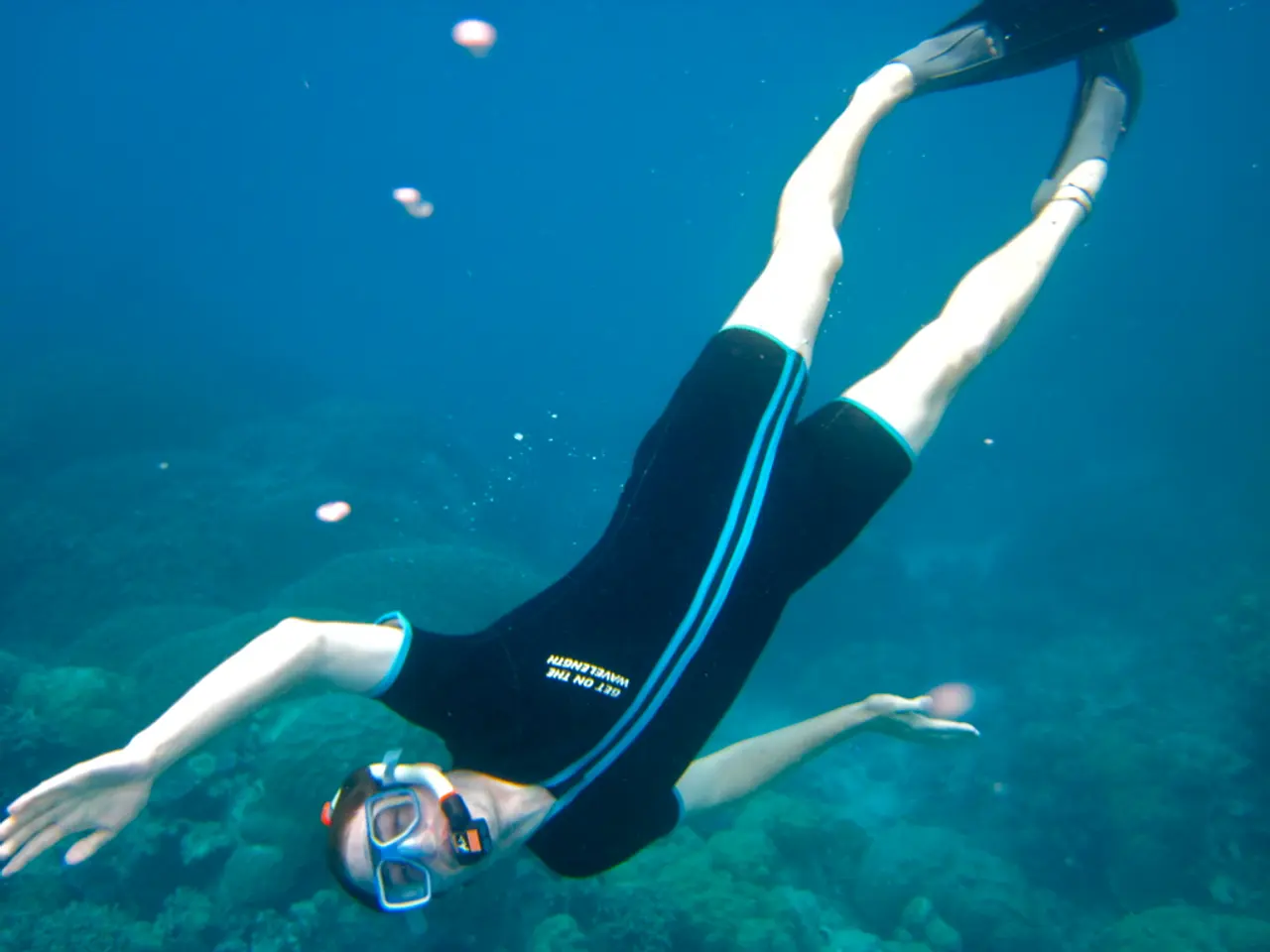Excessive Water Consumption: Consequences of Drinking an Overabundance of Water
Water intoxication, also known as water poisoning or severe hyponatremia, is a potentially life-threatening condition that occurs when the body's sodium levels become dangerously low due to excessive water intake. This condition can lead to an electrolyte imbalance, causing cells, particularly in the brain, to swell.
Common causes of water intoxication include excessive consumption of water in a short time, endurance athletic events without adequate electrolyte replacement, military personnel undergoing rigorous physical exertion under heat stress, certain mental health conditions that provoke compulsive water drinking, and medical treatments or conditions disrupting fluid and electrolyte balance.
The symptoms of water intoxication primarily stem from brain edema due to cellular water retention from low sodium. Early signs include headaches, nausea, vomiting, muscle cramps, and fatigue. Neurological signs may include mental confusion, disorientation, changes in personality and behaviour. Severe cases can lead to seizures, unconsciousness, coma, brain damage, and death. Other signs such as swelling in extremities, profound drowsiness, hallucinations, and paralysis may occur with advanced hyponatremia.
Individuals at a higher risk of water intoxication include athletes, particularly endurance athletes, military personnel, and those with mental health conditions that cause compulsive water drinking. It is essential to moderate water intake and replace electrolytes during prolonged exercise or heat exposure to prevent water intoxication.
In the event of suspected water intoxication, it is crucial to stop water intake immediately and seek urgent medical attention if symptoms are severe (seizures, unconsciousness). Treatment typically involves fluid restriction and sometimes the administration of hypertonic saline under close medical supervision to restore sodium balance without causing rapid shifts.
The Centers for Disease Control and Prevention (CDC) has stated that there are no official guidelines about how much water a person needs to drink each day, as the right amount varies depending on factors like body weight, level of physical activity, climate, and whether they are chestfeeding.
According to the Military Health System and Defense Health Agency, there were 1,812 cases of exertion-related hyponatremia among active service members between 2008 and 2023. It is important to note that it is difficult to consume too much water by accident, but in rare instances, it can lead to fatal complications.
In conclusion, water intoxication is a serious condition that can be caused by excessive water intake, particularly in athletes, military personnel, and those with mental health conditions leading to compulsive drinking. Symptoms range from headache and nausea to life-threatening neurological complications primarily due to hyponatremia-induced brain swelling. To avoid hyponatremia, it's important not to outpace the kidneys by drinking more water than they can eliminate.
- Athletes, particularly endurance athletes, military personnel, and individuals with certain mental health conditions that cause compulsive water drinking, should be aware of the risk of developing water intoxication, a potentially life-threatening condition caused by excessive water intake.
- To prevent water intoxication during prolonged exercise or heat exposure, it is crucial to replace electrolytes and maintain balanced hydration levels, which can be achieved through a combination of fitness-and-exercise, health-and-wellness practices, and appropriate nutrition.
- In the event of depression or other mental health issues leading to compulsive water drinking, it is essential to seek help from mental health professionals and medical experts to manage symptoms and mitigate the risk of developing water intoxication.
- The science behind water intoxication and how it impacts various health aspects, including brain function, mental health, and physical health, is a growing field of research, highlighting the importance of continuous study and understanding this complex condition.
- The Centers for Disease Control and Prevention (CDC) do not provide specific guidelines regarding daily water consumption due to factors varying among individuals, such as body weight, level of physical activity, climate, and whether chestfeeding.
- Research by the Military Health System and Defense Health Agency revealed that Active Service Members faced 1,812 cases of exertion-related hyponatremia between 2008 and 2023, demonstrating the need for improved education and prevention measures for military personnel at risk of water intoxication.
- Beyond the physical complications of water intoxication, such as seizures, unconsciousness, and coma, it is important to consider the potential impact on mental health, as extreme symptoms can lead to emotional stress, psoriatic arthritis flare-ups, and other psychological challenges.




